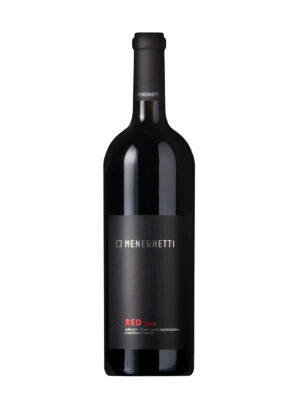What Wine is Good for Beer Drinkers?
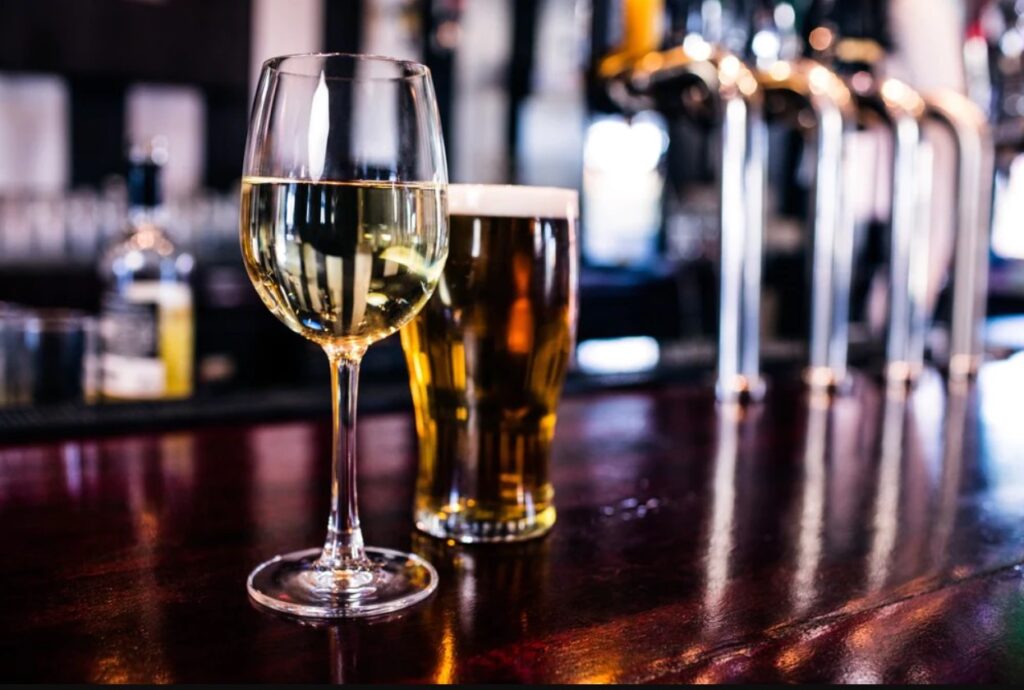
In the never-ending debate between beer and wine, there’s a group of steadfast individuals who claim loyalty to beer and beer only. These beer aficionados insist that nothing can compare to the crisp, hoppy goodness of their favorite brew. While we can’t deny the allure of beer, we want to introduce these beer enthusiasts to a new world of flavors and health benefits they might miss out on – the world of wine!
Best wines for beer drinkers
If you’re a beer lover curious about exploring the intricacies of wine, or if you have a friend who’s been stubbornly sticking to beer, this wine guide is tailor-made for you.
We’ve carefully curated a selection of wines that mirror the characteristics of popular beer styles, making the transition from taproom to tasting room a delightful and fulfilling journey.
Embrace the best of both worlds and savor the harmonious union of beer and wine, as you unlock a whole new dimension of flavors and enjoyment.
Wine for lager and light (pale lager) beer drinkers
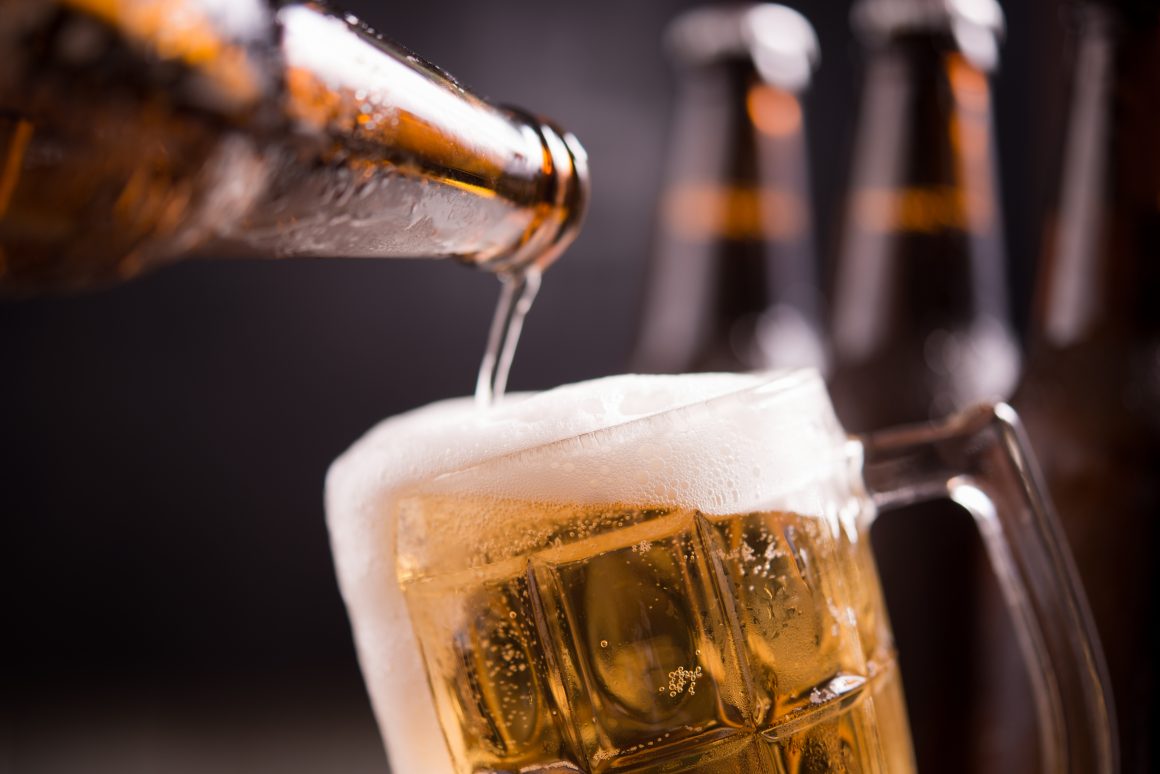
For beer enthusiasts who prefer the crispness and lightness of lagers and pale ales, the world of wine offers diverse options that complement their taste preferences. While beer and wine may seem like two distinct worlds, they share similarities in terms of flavor profiles and complexities.
Generally, wines that appeal to lager and light beer drinkers are those with good acidity, fresh flavors, and a light body.
If you prefer lager beers we suggest you try something light, with refreshing acidity, like a Piena Sparkling wine made from indigenous grape varieties from Plešivica wine-growing region. If you are a pilsner type, then you probably want a spicy wine with mild bitterness and acidity like Matalj Terasa Sauvignon Blanc.
Here are some wines that you might enjoy with lager and light beer:
- Muscadet: A dry, light-bodied white wine from the Loire Valley in France, known for its crispness and refreshing qualities.
- Pinot Grigio/Pinot Gris: Pinot Gris is an excellent choice for beer enthusiasts as it has a light body and is often characterized by citrus and tropical fruit flavors. The crisp notes provide a satisfying taste without being too overwhelming.
- Gavi: Also known as Cortese di Gavi, it is an Italian white wine made from the Cortese grape, offering a delicate and crisp profile.
- Frascati: An Italian white blend of Trebbiano and Malvasia grapes from the Frascati region, typically light and easy to drink with floral and fruity notes.
- Viura: A Spanish white wine grape that produces light and crisp wines, sometimes referred to as Macabeo.
- Prosecco: A sparkling Italian wine known for its light and effervescent character, perfect for celebratory occasions.
- Cava: A sparkling wine from Spain with crispness and refreshing quality, just like lager. Cava is produced using the traditional method, just like Champagne, which involves a second fermentation in the bottle. This Spanish sparkling is a great option for those looking for a more affordable entry point into the world of bubbly drinks. It has a light body, making it easy to enjoy, and pairs well with salty pub fare. Its refreshing taste is similar to that of a lager, making it a versatile option.
- Verdejo: Another Spanish white wine offering a crisp and aromatic profile, often with flavors of citrus and tropical fruits.
- Sauvignon Blanc: Although slightly richer than lagers, pale ales, or light beers, Sauvignon Blanc can be a good option for those who enjoy hoppy beers. Our recommendation is Martin Albus Sauvignon Blanc.
Beyond the general characteristics of lagers and pale ales, specific beer types can further influence wine choices. For example, if you prefer fuller-bodied lagers like Steam, Helles, or Müncheners, seek wines that offer more texture and richness, such as Franković Chardonnay or Grabovac Viognier Riserva.
Wine for Pale Ale drinkers
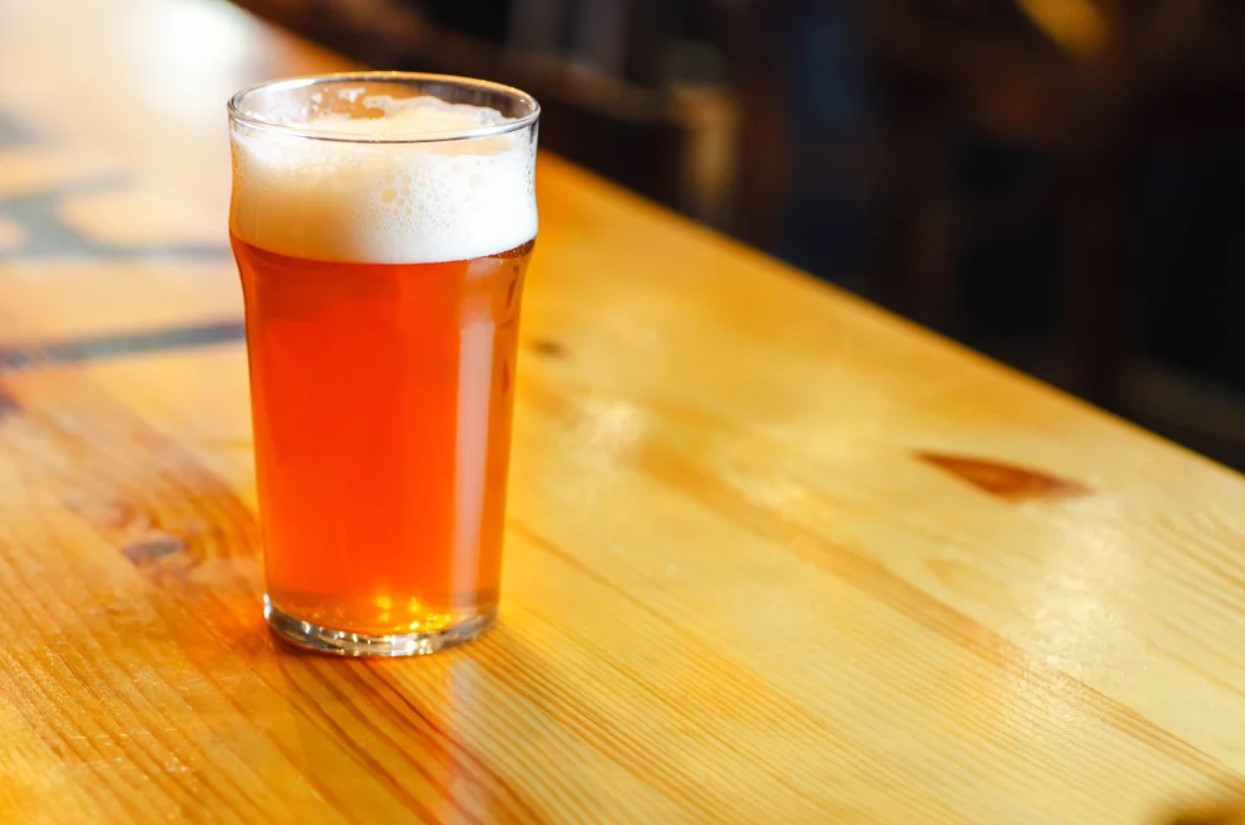
For many beer enthusiasts, Pale Ale is a go-to choice due to its rich body and balanced bitterness. However, even the most loyal Pale Ale drinkers may occasionally wish to explore the world of wine. Fortunately, several wine options can appeal to Pale Ale lovers.
Here are some wines that you might enjoy with a Pale Ale beer:
- Sauvignon Blanc: for those who enjoy the lighter and hoppy notes of Pale Ale, Sauvignon Blanc is a white wine worth trying. This light-bodied wine boasts bright notes of citrus, peach, and sometimes even a hint of green pepper or grass. Its refreshing and crisp characteristics can harmonize with the flavors of Pale Ale, providing a delightful tasting experience. Our recommendation is Kota 375 Sauvignon.
- Pinot Noir: for those looking to explore the realm of red wines, presents an excellent starting point. This red wine variety boasts a lighter body and lower tannins, giving it a smoother and slightly earthy profile. Opt for Sontacchi Pinot Noir.
Wine for India Pale Ale drinkers
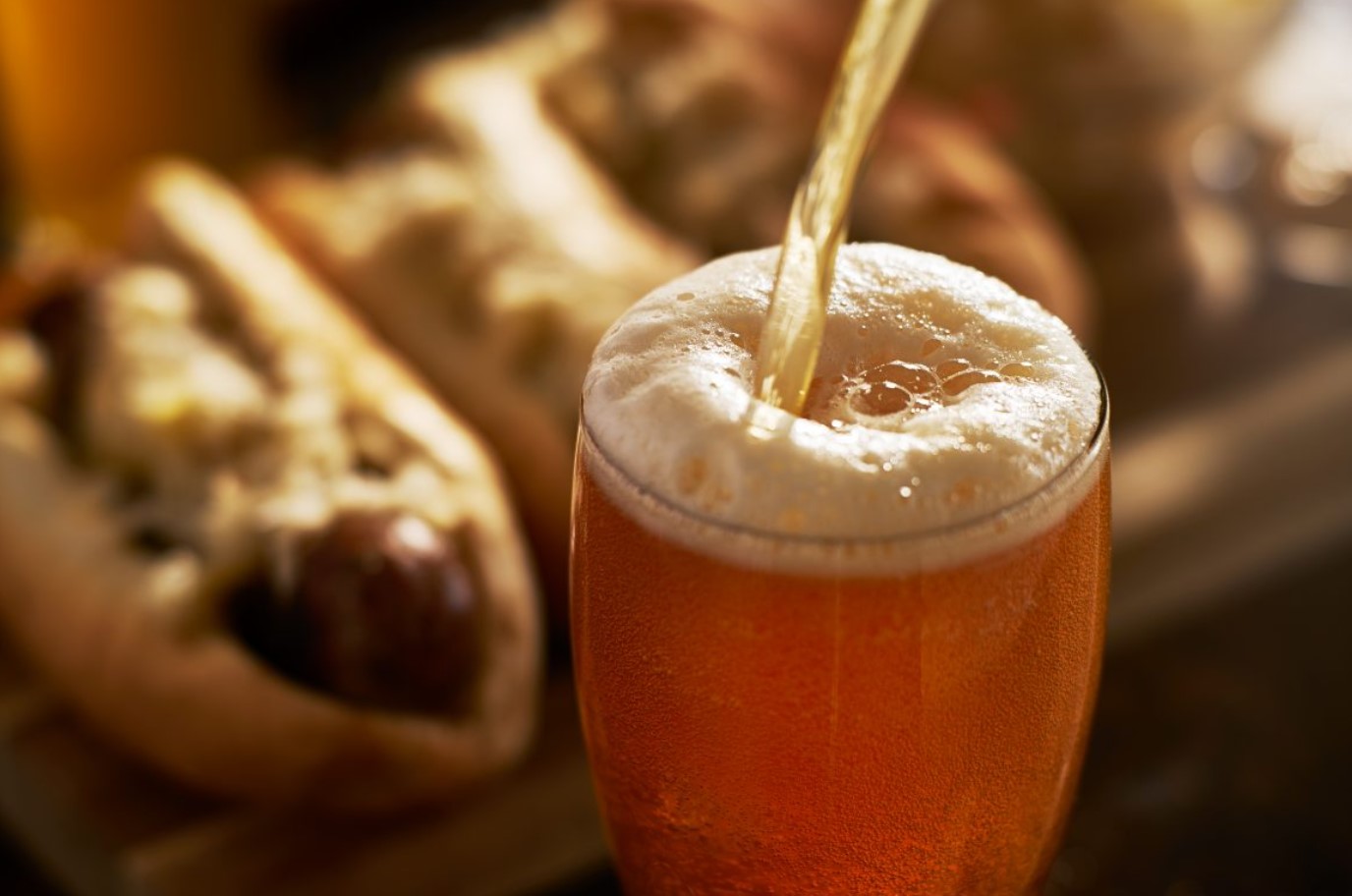
If you enjoy India Pale Ales (IPAs) and are curious about wines that might appeal to your taste, there are several options worth exploring. Since IPAs are known for their hoppy and bitter characteristics, wines with zippy acidity and bold flavors often complement these beer preferences.
Here are some wines that you might enjoy with a India Pale Ale beer:
- Grüner Veltliner: This Austrian white wine has bright acidity, citrus notes, and a touch of pepper, making it a great match for IPA drinkers. It can provide a refreshing and vibrant experience similar to the hoppy profile of IPAs.
- Dry Riesling: While Riesling is often associated with sweetness, don’t overlook the dry style of this versatile grape. Dry Rieslings are popular for their crisp acidity, floral aromas, and citrus flavors. The acidity in these wines can complement the bitterness of IPAs, offering a delightful contrast of tastes. The best way to uncover these is by trying Bolfan Rajnski Riesling.
- Pinot Noir: If you’re open to exploring red wines, Pinot Noir is an excellent option for IPA drinkers. This light red wine offers a smooth texture and vibrant fruitiness, making it an appealing choice for those who enjoy IPAs’ complexity without overpowering bitterness. Taste Bovin Pinot Noir to uncover by yourself.
- Syrah or Malbec: For those who prefer full-bodied reds, Korlat Syrah or Malbec can be a suitable choice. These wines have bold flavors and robust tannins that can complement the intensity of IPAs.
- Nebbiolo: Another red wine worth exploring is Nebbiolo, which is known for its high acidity and tannins. It provides a complex and structured drinking experience that may appeal to IPA drinkers.
Beyond individual wine options, let’s explore some ideal pairings for IPA drinkers to elevate their wine and beer experience:
- For hoppy IPAs, try a Sauvignon Blanc. The bright, herbal notes of Sauvignon Blanc can complement the hoppy bitterness of your favorite IPAs.
- If you enjoy citrusy IPAs, consider matching them with a citrus-forward wine like Albariño from Rías Baixas. The tangy flavors will harmonize with the citrus notes of the beer.
- If you prefer malty and caramel-forward IPAs, opt for a wine with similar characteristics, such as a rich and oaky Chardonnay or a caramel-infused Carmenere.
- For those who love the complexity of double or imperial IPAs, explore wines with depth, such as Cabernet Sauvignon or Bordeaux blends.
Wine for Wheat Ale drinkers
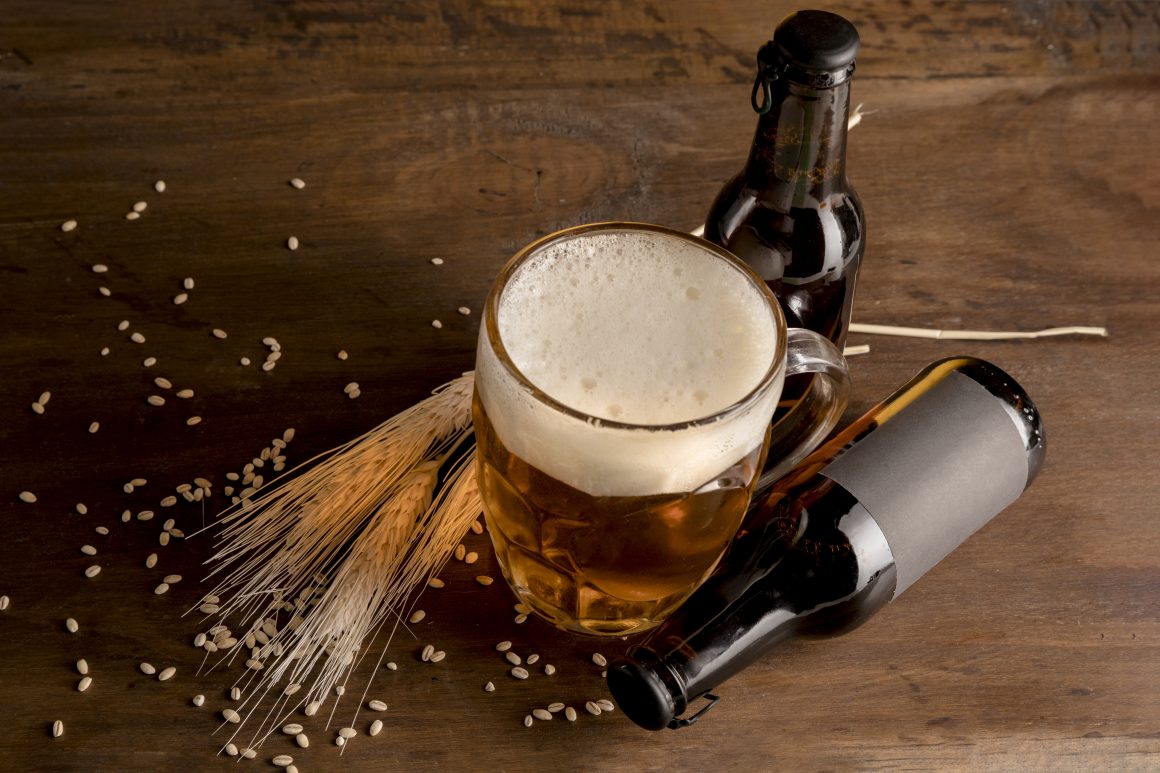
Wheat Ale beer is a beloved beverage known for its smooth, creamy, and refreshing taste, making it a popular choice among beer enthusiasts. Wheat ale beer, often referred to as “white beer” or “wheat beer,” is brewed with a significant proportion of wheat, which contributes to its distinct flavor profile.
This style of beer is known for its light and hazy appearance, and it typically exhibits notes of banana, clove, citrus, and sometimes a touch of spiciness from the yeast used in fermentation. The result is a beer that is easy to drink and refreshing.
Here are some wines that you might enjoy with a Wheat Ale beer:
- Chardonnay: with its rich mouthfeel and invigorating lemony flavor, Chardonnay shares striking resemblances with wheat ales. Both balance complexity and refreshment, making Chardonnay an ideal choice for those seeking a delightful alternative to wheat beer. To experience mentioned entirely taste Medea Chardonnay.
- Riesling: Riesling, a versatile white wine, pairs exceptionally well with wheat ale beer. Its fruity and fresh nature complements the fruity esters in wheat ale, creating a harmonious balance of flavors. Go for Bovin Riesling.
- Sauvignon Blanc: This crisp and refreshing white wine is an excellent choice for those who enjoy wheat ale’s zesty and citrusy aspects. The lively acidity of Vezak Sauvignon Blanc can cut through the creamy texture of the beer, enhancing the overall drinking experience.
- Rosé: Enjoy a Kutjevo Rosé Premium or a Vislander Rosé from the Vis Island with your wheat ale for a more adventurous pairing. Rosé wines offer various flavors, from dry and fruity to off-dry and floral, making them suitable for various wheat ale styles.
Wine for Belgium Ale drinkers
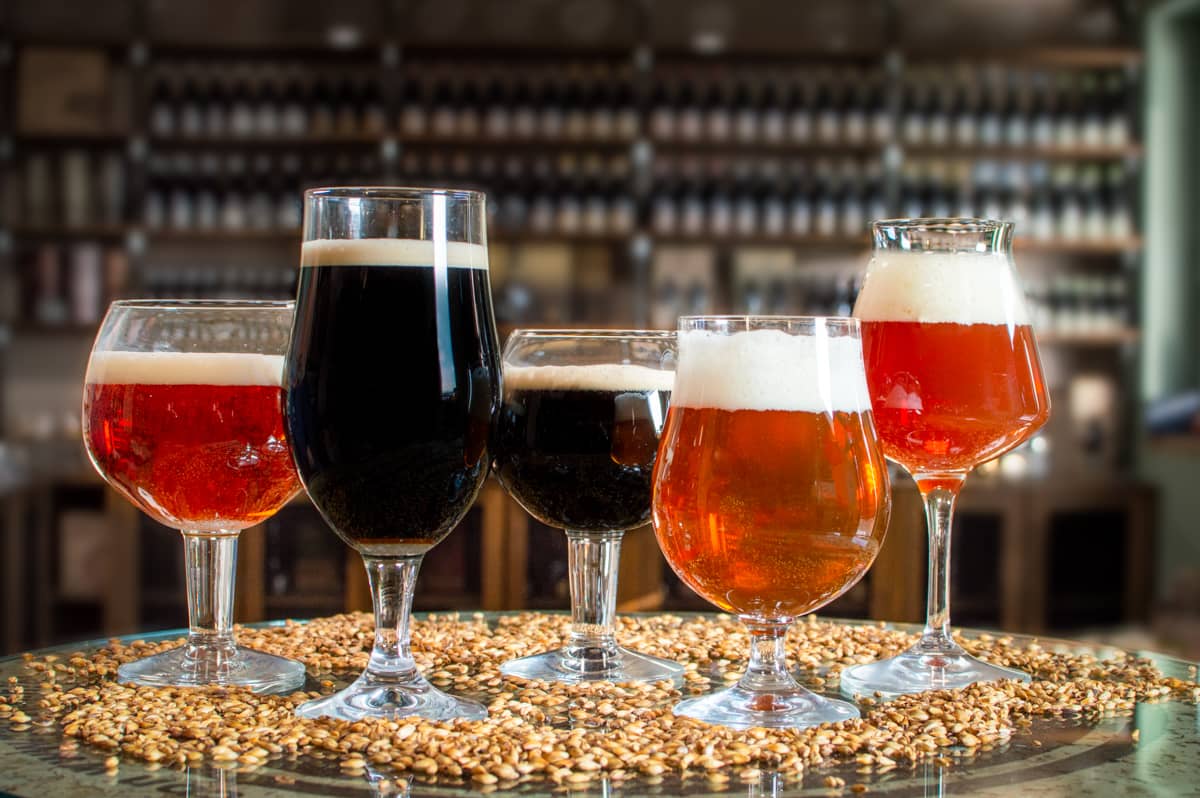
Brown ales are known for their toasty, nutty aromas and hearty yet silky finishes. If you appreciate these attributes, you’ll find a kindred spirit in
Here are some wines that you might enjoy with a Belgium Ale beer:
- Merlot: Merlot wines carry hints of vanilla, mocha, and graphite, creating a symphony of flavors that resonate with brown ale enthusiasts. Prepare to be enchanted by the velvety embrace of a Korlat Merlot, just as you would with your favorite brown ale.
- Shiraz/Syrah or Grenache: These wines, particularly those from the Côtes du Rhône region, can have a similar smooth and fruity quality to Belgium Ale, with hints of smoky sweetness. Or opt for the Croatian one, Krauthaker Syrah.
Wine for Porters, Stouts and Dark Ales drinkers
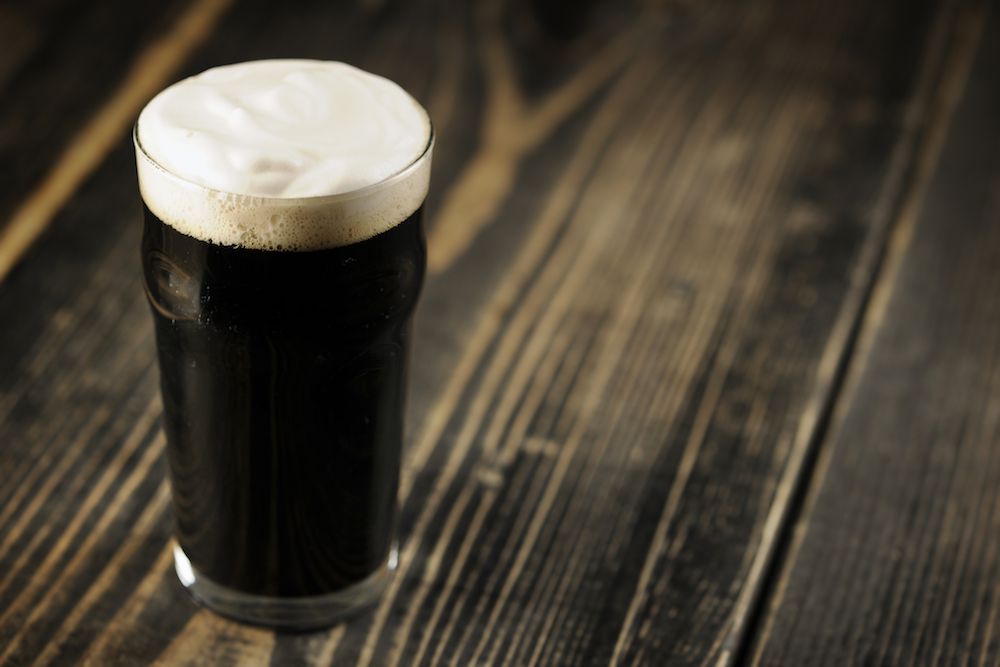
Porters, Stouts and other Dark Ales may have a medium body, but their dark and earthy essence is unmistakable. One of the key factors that make red wines suitable for dark ale and porter drinkers is their tannin content.
Tannins are natural compounds found in grape skins, seeds, and stems, and they contribute to the mouthfeel and structure of the wine. Similarly, dark ales and porters often exhibit a strong and pronounced body, which can be complemented by the tannins present in certain red wines.
When pairing wine with dark ales and porters, it’s essential to consider the foods you typically enjoy with these beers.
Here are some wines that you might enjoy with Porter, Stout and Dark Ale beer:
- Cabernet Sauvignon and Chianti blend: are two examples of complex red wines that boast a considerable amount of tannins, making them an excellent match for those who prefer their beers dark and hearty. Red wines like Bordeaux Cab and Chianti can enhance the flavors of dishes such as grilled meats, roasted vegetables, and hearty stews. The bold and rich characteristics of these wines align perfectly with the savory and roasted notes often found in dark ales and porters, creating a harmonious and satisfying combination on the palate.
Which is better to drink beer or wine?
When it comes to alcoholic beverages, beer and wine are among the most popular choices. But the question remains: which one is better to drink? Both beer and wine have been studied for their potential health benefits.
Wine, especially red wine, is often praised for its high levels of polyphenols, flavonoids, and tannins. These compounds have been linked to improved heart health and may help lower the risk of certain diseases, including type 2 diabetes. On the other hand, beer contains essential nutrients, such as vitamins, minerals, and fiber, which can contribute to a balanced diet.
When it comes to calorie content, wine generally has fewer calories than beer. For individuals looking to manage their weight, opting for wine might be a more favorable choice. However, both alcoholic beverages can lead to weight gain if consumed excessively. Moderation is key when considering their impact on weight management.
Excessive alcohol consumption can be detrimental to liver health, regardless of whether one prefers beer or wine. While some studies suggest that moderate wine consumption may have a slightly better effect on liver health, the most crucial factor is limiting overall alcohol intake. Regarding stomach health, individual tolerance levels may vary. Some people may find beer causes more bloating and discomfort, while others may experience similar issues with wine.
Both beer and wine have been associated with certain heart health benefits. Some studies show that red wine’s antioxidants can positively impact heart health, while others indicate that beer’s nutritional content, such as B vitamins, may also play a role. Ultimately, the key to heart health is moderate alcohol consumption and a well-balanced diet.
Beer is known to contain more nutrients, such as vitamins B6 and B12, compared to wine. These vitamins are essential for various bodily functions, including energy metabolism and nerve function. Wine, on the other hand, is lower in carbohydrates, making it a better option for those following low-carb diets like keto.
In conclusion, the choice between beer and wine ultimately comes down to individual preferences, dietary needs, and health considerations. Both beverages have their unique qualities, and moderate consumption can be part of a balanced lifestyle.
For heart health, both beer and wine may offer benefits, and for weight management, wine may be a slightly better option due to its lower calorie content. Nevertheless, it is crucial to remember that excessive alcohol consumption can lead to adverse health effects, regardless of the chosen beverage. As always, moderation is the key to enjoying alcoholic drinks responsibly and maintaining a healthy lifestyle.
Lastly, here are some reasons to consider trying wine even if you prefer beer:
- Expanding palate: Trying different wines can expand your palate and expose you to a diverse range of flavors and aromas that may not be present in beer.
- Flavor variety: Wine comes in various styles, including red, white, rosé, sparkling, and dessert wines, each offering distinct flavor profiles. From fruity and refreshing to bold and complex, there is a wine to suit different preferences and occasions.
- Health benefits: Moderate wine consumption has been associated with certain health benefits, especially red wine, which contains antioxidants like resveratrol. Studies suggest that moderate red wine consumption may be linked to better heart health and other potential health benefits.
- Social and cultural aspect: Wine has a rich history and cultural significance in many regions worldwide. Trying different wines can provide insights into different cultures and traditions, making it a unique and enjoyable social experience.
- Celebratory and special occasions: Wine is often associated with celebrations and special moments. Whether it’s toasting at a wedding or enjoying a relaxing evening, wine can add a touch of sophistication and elegance to the occasion.
- Food pairing: Wine can be an excellent companion to meals as its acidity and tannins complement a wide array of dishes, enhancing the overall dining experience. Pairing wine with food can bring out new dimensions of flavors and create harmonious combinations.
- Occasion flexibility: While beer is a go-to for many occasions, having knowledge of wine can provide flexibility in social settings and events.
- Appreciation for terroir: Wine offers a unique opportunity to appreciate the concept of terroir, where the geography and climate influence the taste of the final product.
Conclusion
So, to all beer lovers out there, we encourage you to venture beyond the realm of beer and embrace the wonders of wine.
Just like beer, the world of wine offers an endless array of flavors, aromas, and experiences waiting to be explored, and with our guide it’s easier to find a wine out there that perfectly complements your taste preferences.
In conclusion, wine can be a delightful and intriguing beverage for beer lovers to explore. Just as beer comes in a wide variety of styles and flavors, so too does wine.
As beer lovers embark on their wine journey, it’s essential to approach the experience with an open mind and a willingness to experiment with different wine styles and varieties.
By trying out different wines that match your beer preferences, you can discover new and exciting tastes that expand your beverage horizons.
Cheers to the journey of discovering the perfect wine for beer lovers!
Our Expertise
Valentina Silovic is an experienced sommelier and content creator with over a decade of expertise in the wine industry. She has worked in various settings, from luxurious hotels to cozy wine bars, and has explored the grandest wineries in Croatia, tasting and discussing an uncountable number of bottles along the way.
Want to meet the team behind Wine & more, seek recommendations, and discover in-depth insights into our product testing and reviews? Click here now!



